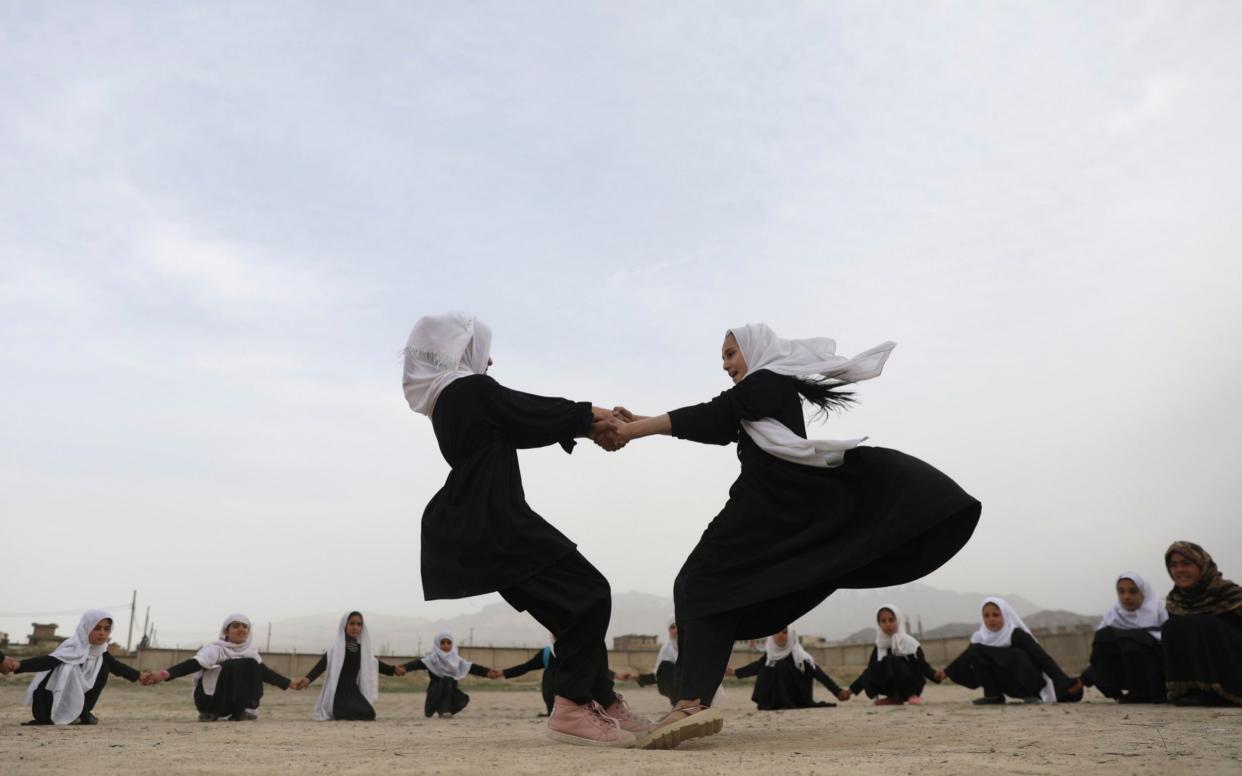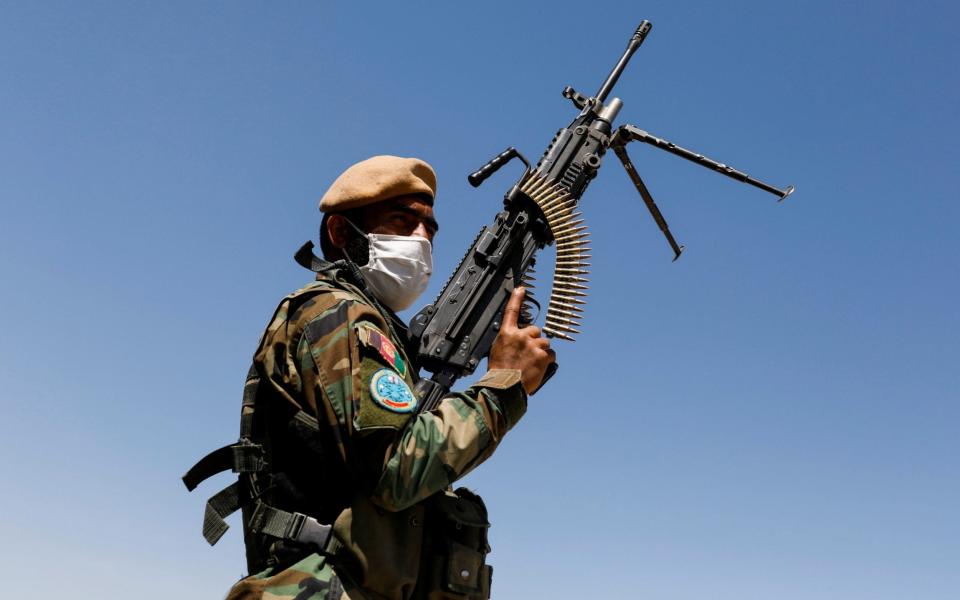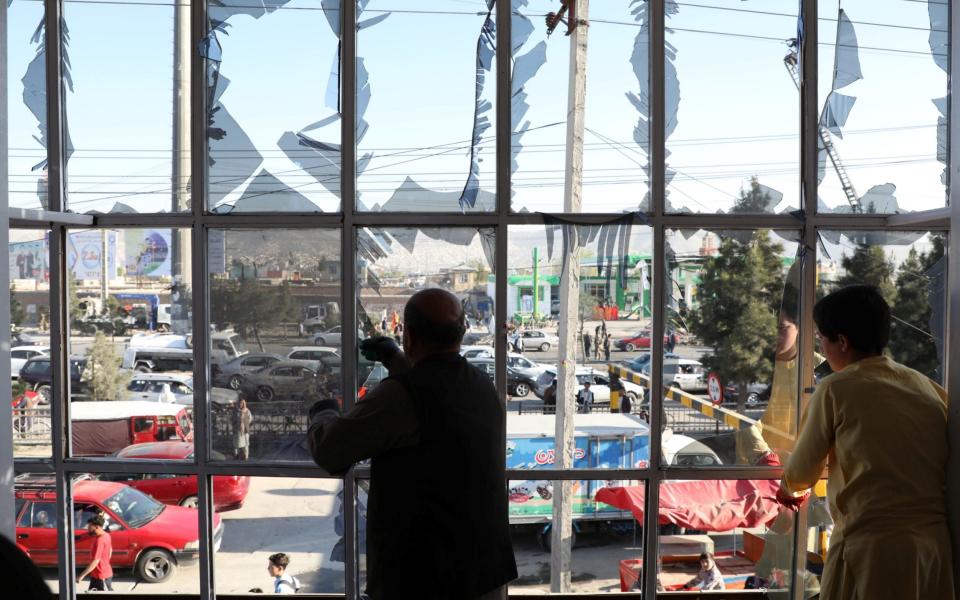‘It’s equal to being dead’: Women fear Taliban’s return as US troop withdrawal nears

On a warm spring afternoon, the coffee shops and outdoor restaurants in Kabul are usually crammed full of young people. It is a far cry from how the city was under Taliban rule in the late 90s – here, women and men can mingle, chat, even go on dates.
But these days, the conversation has turned serious as US troops prepare to withdraw from Afghanistan. Many fear that the Taliban will gain power and that the country could once again be flung into civil war with many of its warlords still vying for power.
Young women worry they could be subjected to the old cruelties their mothers and grandmothers endured under the Taliban's 1996-2001 rule. Human rights organisations warn that women’s fundamental freedoms can’t be compromised.
The Taliban remain deeply misogynistic, explains Heather Barr, interim co-director in the Women's Rights Division for Human Rights Watch.
“Women have suffered deeply during Afghanistan’s 40 years of war, and they desperately long for peace. They have also fought ferociously for equality in the years since the fall of the Taliban government and have made great progress. Today there are women ministers and governors and judges and police and soldiers,” she says.

Fatimah Hossaini, a 27-year-old photographer and artist, feels the uncertainty keenly.
She sits in the garden of one of the buzzing cafes. She was born in Iran; her parents had initially left Afghanistan due to the war. She returned in 2013 and has since worked across the country.
“I’ve seen so many changes compared to when I first arrived,” she says. “Here in Kabul, women are renting their own apartments now, [they] move up in their career and spend their free time with friends. In the villages, change is visible too. I worry that the next government could take this away.”
During the Taliban’s reign, women were largely extinguished from public life, but over the past two decades they have again played an active role in both social and political life.
Joe Biden, the US president, announced last week a full troop withdrawal from Afghanistan by Sept 11, on the 20th anniversary of the 9/11 attacks.
Following an agreement towards peace signed by the Taliban and Donald Trump's administration, the initial withdrawal date was May 1. Mr Biden says troops will now leave by September, no matter the situation in Afghanistan, and despite a deadlock in peace talks between the insurgents and the Afghan government.
The Foreign Office has advised Britons in Afghanistan to consider leaving the country ahead of anticipated violence on May 1.
A peace conference, hosted by the Turkish government and scheduled for this Saturday was just postponed as the Taliban declined to attend, stating that withdrawing past the May 1 date was unacceptable.
The Taliban still holds sway over large parts of the country, while other areas are contested.
A campaign of targeted assassinations – many of them female – has contributed to a climate of fear, with activists, journalists and politicians killed in blasts caused by small magnetic explosives affixed to their cars or murdered at gunpoint. The Taliban has not claimed the attacks.
In the first three months of this year alone, the United Nations documented 1,783 civilian casualties, out of which 573 people were killed and 1,210 injured – a 29 per cent increase on last year. Female casualties increased by 37 per cent.
The Taliban says it has made some changes since 2001, including suggesting they would allow girls to go to school, but much remains unclear.

Fawzia Koofi, who negotiates with the Taliban in Doha as part of a team dispatched by the Afghan government is unconvinced the militants have changed substantially.
“I think we have to agree on a political peace with them knowing that they haven’t changed,” she says.
“If the Taliban practises their ways and ideas in a more open society, they will probably change over time,” Ms Koofi adds.
While some conservative gender norms and mindsets remain in both urban and rural pockets of Afghan society, Afghanistan has seen undeniable changes over the past decades.
Zarsanga Pashtun lives in a village largely under the control of the Taliban. The 35-year-old woman, who lives in Qarabagh district in southeastern Ghazni province, says most of her dreams are derived from watching Turkish dramas on television.
“It’s where I see educated women living happily, in luxury and freedom,” she says. “I want this kind of life for my children and me. I have never seen it in my village.”
Thousands of Afghans have packed up to leave recently, with many setting up a new life in countries such as Turkey, India, Uzbekistan. All of them hope to escape both the Taliban and a possible wave of violence that could see large numbers of people flee once again.
Massouma Tajik, a 22-year-old data analyst sitting outside one of Kabul's cafes, explains that if the militants were to return, she’d have no choice but to leave.

“I’m afraid to even think about it,” Ms Tajik admits. “The Taliban could take away our public spaces, but as a woman, I have bigger worries: I have my university degree and my job, my hopes for the future.”
Ms Tajik dreams of opening a coding school for children one day, but fears she may not be allowed.
“If my freedom is taken from me, if I have to hide inside my house without being able to pursue my dreams, it’s equal to being dead – even if I am alive.”

 Yahoo News
Yahoo News 